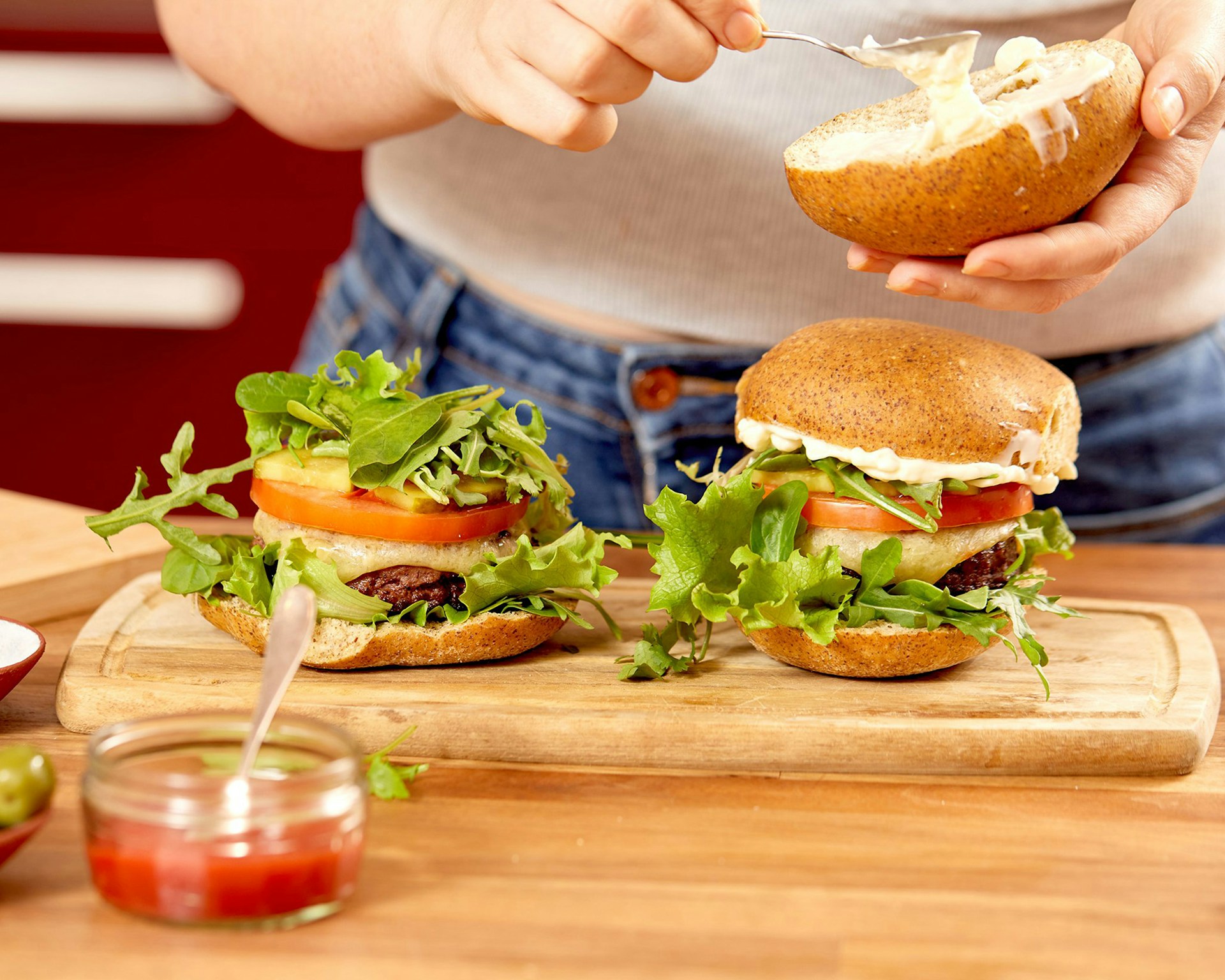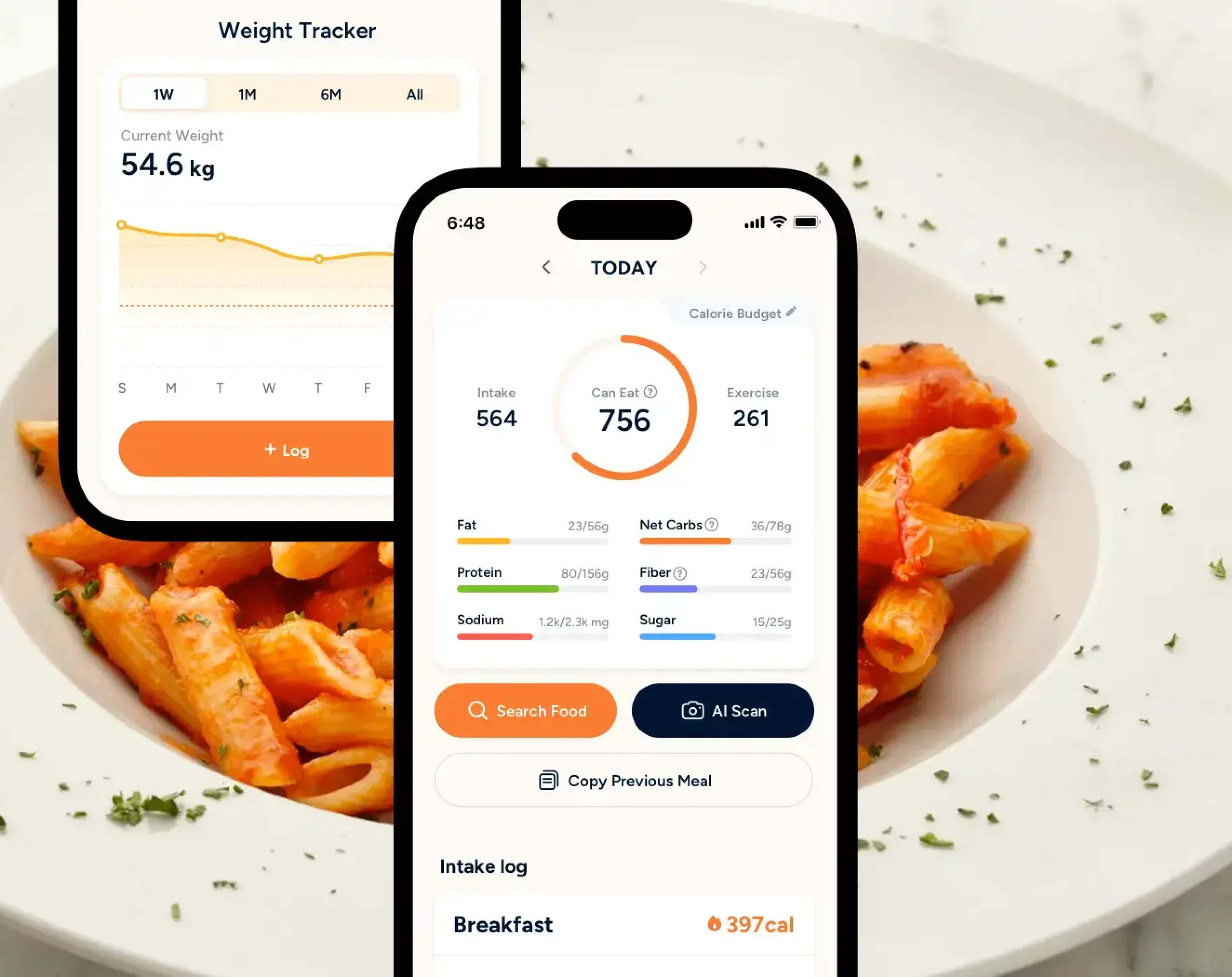Symptoms like unexplained weight gain, fatigue, or irregular cycles seem to work against you when you’re diagnosed with PCOS. However, just because you have PCOS doesn’t mean that all hope is lost. There are still ways to combat these symptoms and manage your hormones, blood sugar, and inflammation with a PCOS diet. We’ll explore what the PCOS diet is and the foods that can help you feel more balanced and in control.
Key Takeaways
- Women with PCOS may experience symptoms like irregular cycles, weight gain, fatigue, insulin resistance, and inflammation.
- Focusing on whole, unprocessed foods, lean proteins, healthy fats, and low-glycemic index carbohydrates can help regulate hormones, blood sugar, and inflammation.
- Dietitians often suggest the Mediterranean diet for PCOS while avoiding processed and inflammatory foods.
- Fried foods, sugary drinks, refined flour, red and processed meats, and alcohol can exacerbate PCOS symptoms and interfere with weight management.
- Consistency in diet, exercise, and stress management helps support hormone balance, weight control, and overall health.
What Is PCOS?
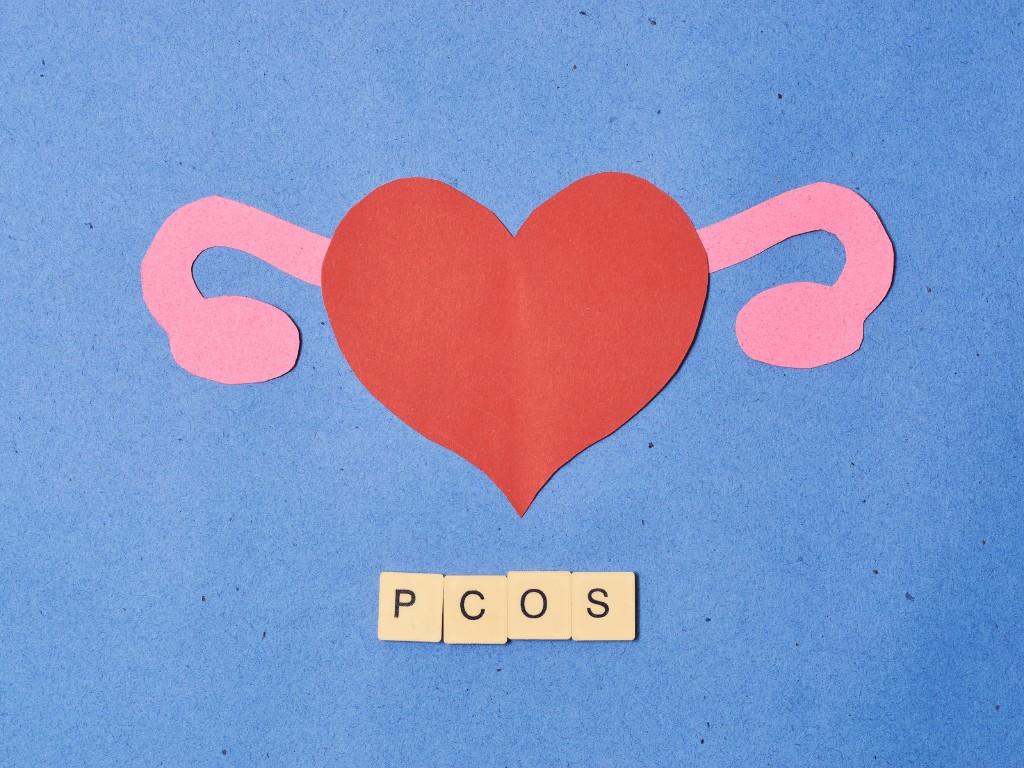
Polycystic ovary syndrome (PCOS), also known as polycystic ovarian syndrome, is an endocrine disorder that affects women when they reach reproductive age [1]. It is estimated that around 5% to 26% of females are impacted by it globally.
PCOS occurs when your ovaries are producing hormones in excess, leading to what’s known as androgens. As a result of excessive hormones, it may contribute to complications such as irregular menstrual cycles, infertility, metabolic disorders, obesity, type 2 diabetes, cardiovascular disease, poor blood glucose control, and endometrial cancer, to name a few.
What Is the Best Diet for PCOS?
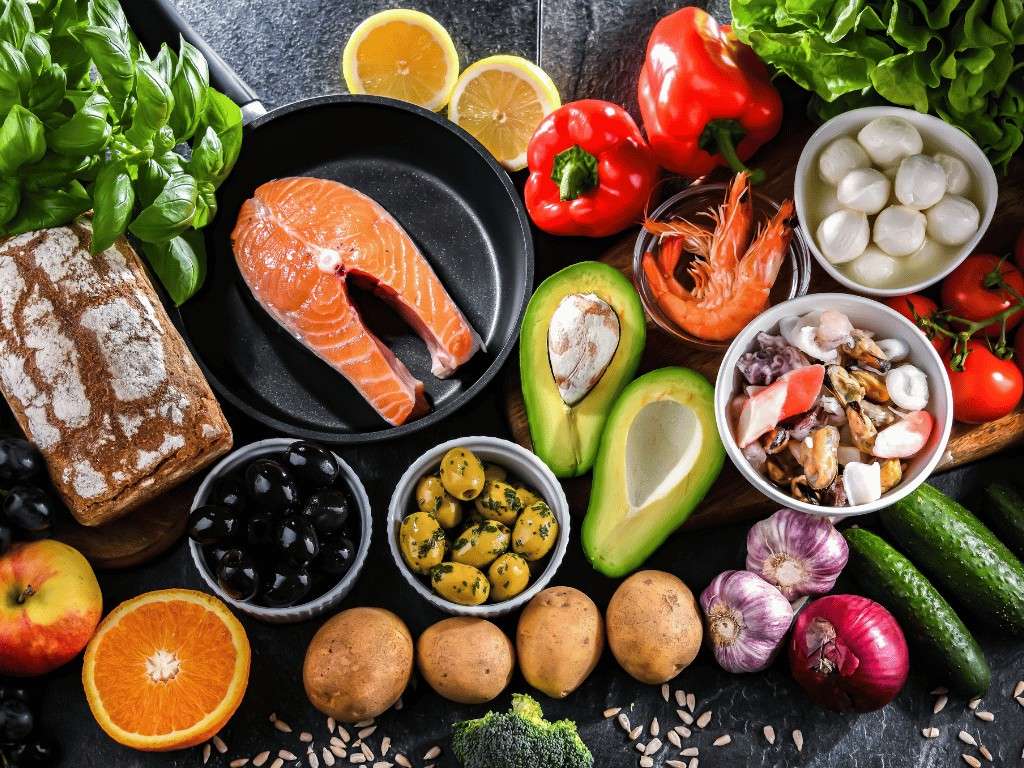
Common PCOS symptoms an individual may experience are abnormal hair growth, acne issues, insulin resistance, hair loss, cysts, inflammation, weight gain, and other symptoms.
According to Amanda Stathos, a dietitian at Johns Hopkins Hospital, people with PCOS can still work to improve their overall health with lifestyle changes and a good diet [2].
Insulin resistance affects an estimated 50 to 70% of people with PCOS and increases the risk of diabetes. One way to combat this is by maintaining a healthy weight, and this is done through diet and exercise, as said by Stathos.
The Greek or Mediterranean diet is one of the most common diets recommended by dietitians as it mainly emphasizes eating whole foods, healthy fats, and includes fatty fish. It can be part of the dietary changes that you make since it focuses on a healthy approach rather than being a fad diet, with quick fixes.
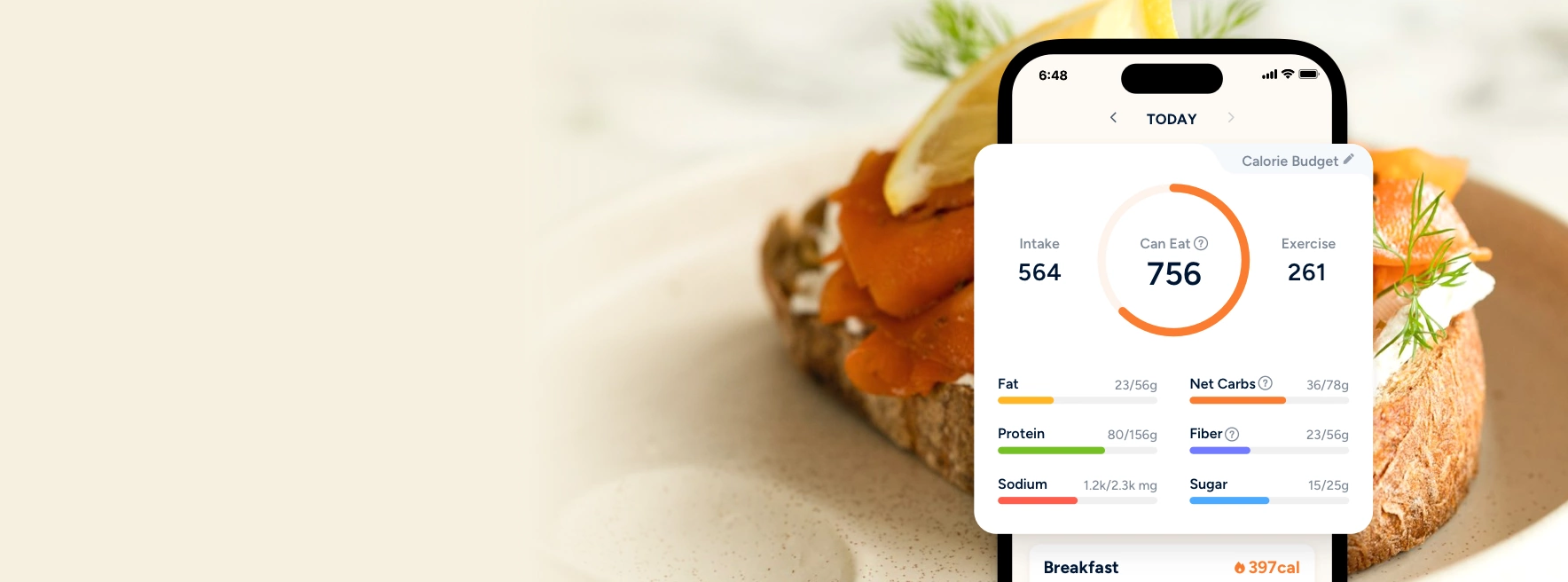
Smarter Nutrition Tracking
Track calories and over 100 other nutrients all in one place.
Download Eato For FreeFoods to Eat and Avoid for a PCOS Diet
Generally, people with PCOS should focus on whole, unprocessed foods and avoid those that may cause inflammation.
Some foods to include are:
- Whole grains
- Fresh fruits and non-starchy vegetables
- Omega-3-rich seafoods
- Lean meat
- Beans and legumes
- Olive oil
- Nuts and seeds
Meanwhile, you should try to avoid these foods as they can lead to increased inflammation:
- Fried foods (e.g., French fries, potato chips, corn chips, fried fish)
- Saturated fats (e.g., butter, margarine)
- Red meat
- Processed meats and processed snacks
- Sugary beverages
- Alcohol
- Refined flour
Does the PCOS Diet Help With Weight Loss?
A PCOS diet that focuses on consuming whole, unprocessed foods can help to support weight loss. The emphasis is on eating low glycemic index (GI) foods, lean protein, and healthy fats while omitting foods that are high in salt, added sugar, and unhealthy fats.
Processed foods, alongside refined carbohydrates, can lead to increased risk of weight gain, inflammation, and insulin resistance.

Weight Loss Has Never Been Easier
Get accurate nutrition info instantly. Keep track of your progress.
Download Eato For Free7-Day PCOS Diet Plan, PDF Available
Below is a sample 7-day PCOS diet plan that you may refer to if you need some inspiration on how to get started with this diet. It follows the key principles of a healthy diet, which is a focus on whole foods with minimally processed ingredients.
At the end of it, you’ll also find a PDF version that you can save and download.
Day 1
- Breakfast: Blueberry chia seed pudding with almond milk
- Snack: Apple with almond butter spread
- Lunch: Grilled salmon with brown rice
- Snack: Carrot and cucumber sticks with hummus
- Dinner: Turkey stir-fry with mixed vegetables
Day 2
- Breakfast: Spinach and mushroom omelette
- Snack: Handful of pumpkin seeds
- Lunch: Grilled chicken breast with roasted sweet potato and green beans
- Snack: Small bowl of berries
- Dinner: Baked cod with marinara zucchini noodles
Day 3
- Breakfast: Overnight oats with chia seeds, flaxseed, and unsweetened almond milk
- Snack: Boiled eggs with avocado slices
- Lunch: Quinoa salad with chickpeas, cucumber, tomato, olive oil, lemon
- Snack: Celery sticks with tahini
- Dinner: Grilled beef strips with asparagus and cauliflower rice
Day 4
- Breakfast: Frozen berries smoothie
- Snack: Handful of walnuts or almonds
- Lunch: Baked chicken thighs with roasted Brussels sprouts and quinoa
- Snack: Edamame with sea salt
- Dinner: Salmon with roasted carrots and sautéed kale
Day 5
- Breakfast: Scrambled eggs with spinach and avocado
- Snack: Small handful of sunflower seeds
- Lunch: Grilled turkey burger with lettuce wrap and side salad
- Snack: Cucumber slices with guacamole
- Dinner: Grilled shrimp with spaghetti squash and garlic olive oil
Day 6
- Breakfast: Chia, flaxseed porridge with mixed berries
- Snack: Roasted chickpeas
- Lunch: Lentil and vegetable soup
- Snack: Pear slices with almond butter
- Dinner: Baked chicken breast with roasted zucchini and cauliflower mash
Day 7
- Breakfast: Protein smoothie bowl
- Snack: Brazil nuts (selenium boost for hormone health)
- Lunch: Grilled salmon with wild rice and steamed green beans
- Snack: Hummus with bell pepper slices
- Dinner: Grass-fed beef stir-fry with broccoli and bok choy
The Final Takeaway: Losing Weight With PCOS
The first step is to take small, consistent changes in your diet, movement, and stress management when managing your PCOS and its symptoms. If you’d like extra support in staying on track, apps like Eato can make the process simpler. With tools to track calories, macros, and meal patterns, Eato helps you build habits that work with your body and not against it. Start using Eato today!

Smarter Nutrition Tracking
Track calories and over 100 other nutrients all in one place.
Download Eato For Free
